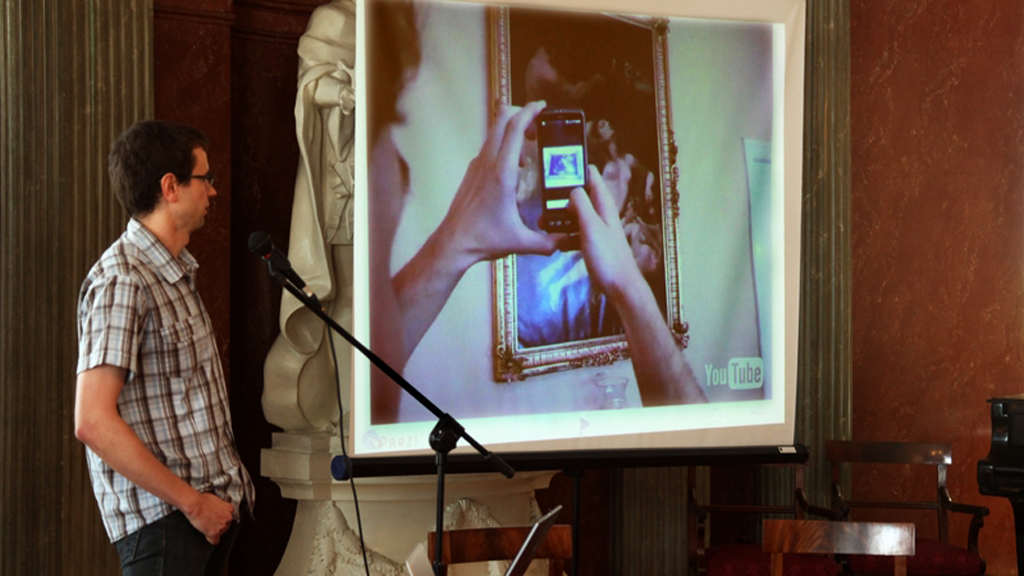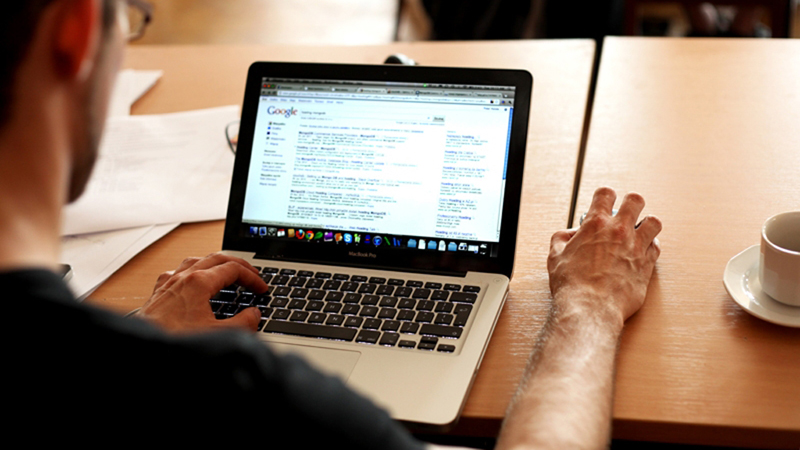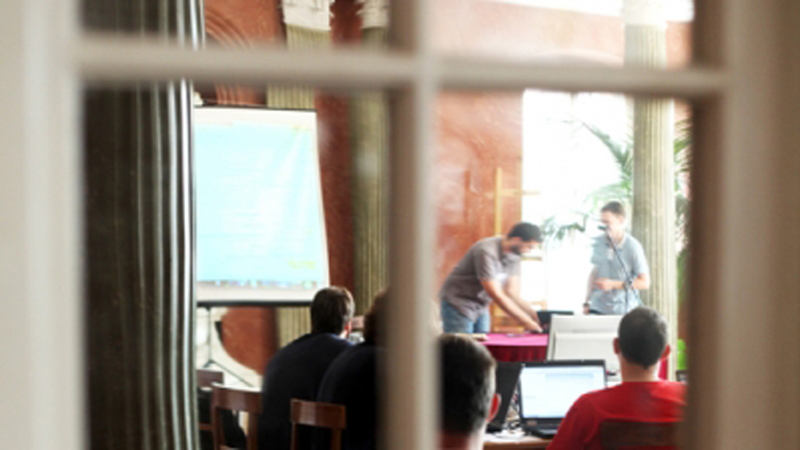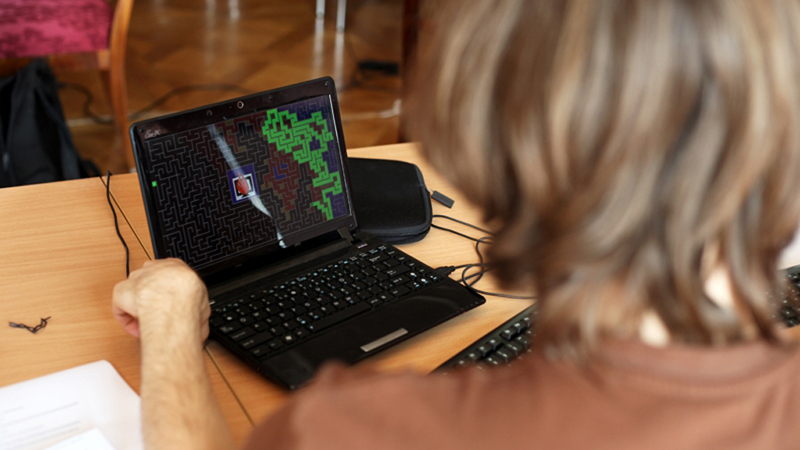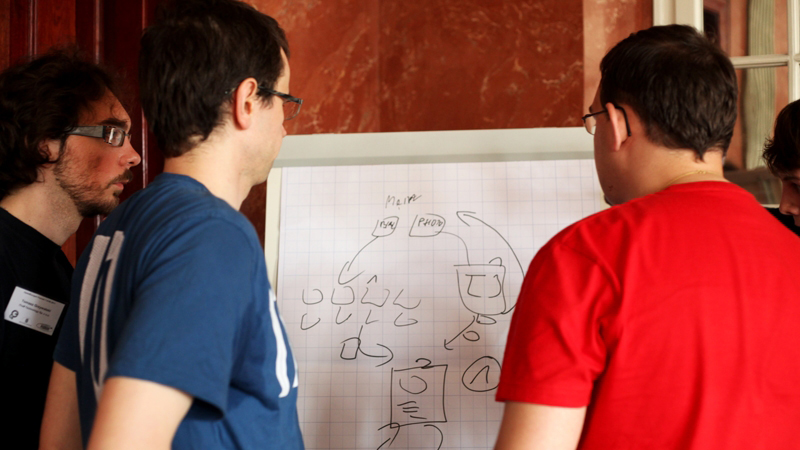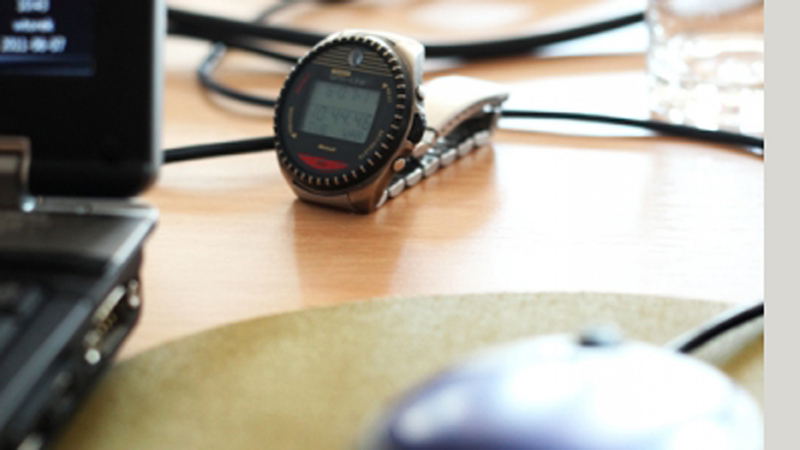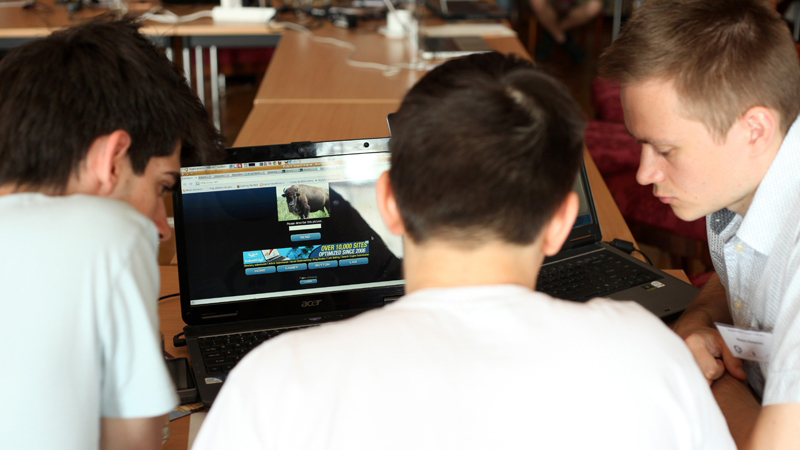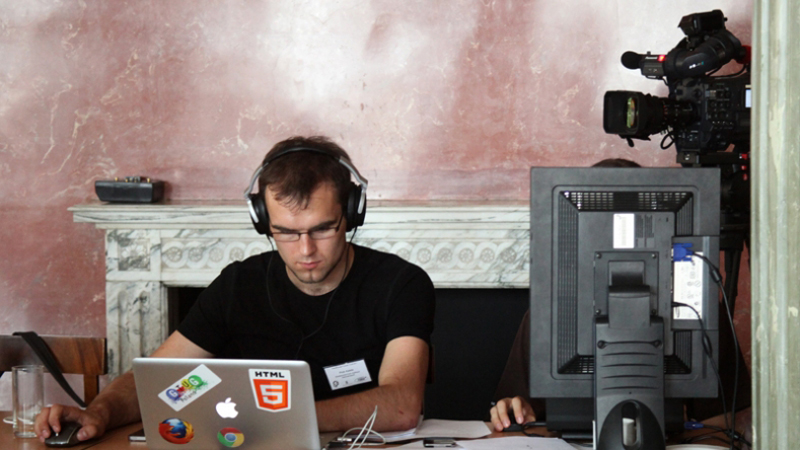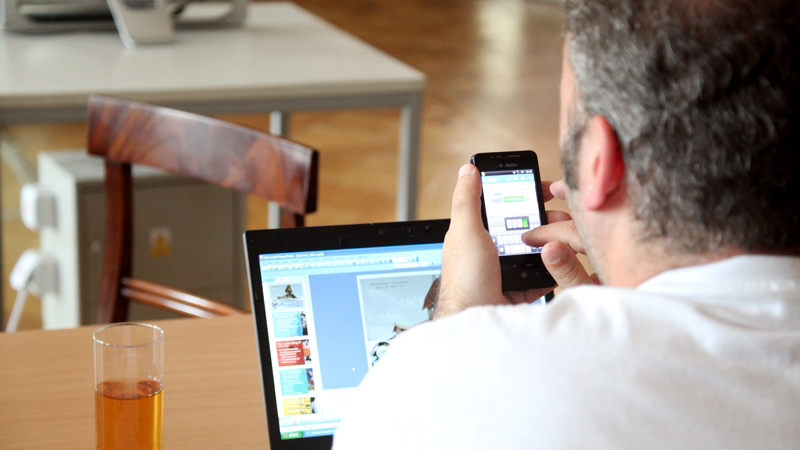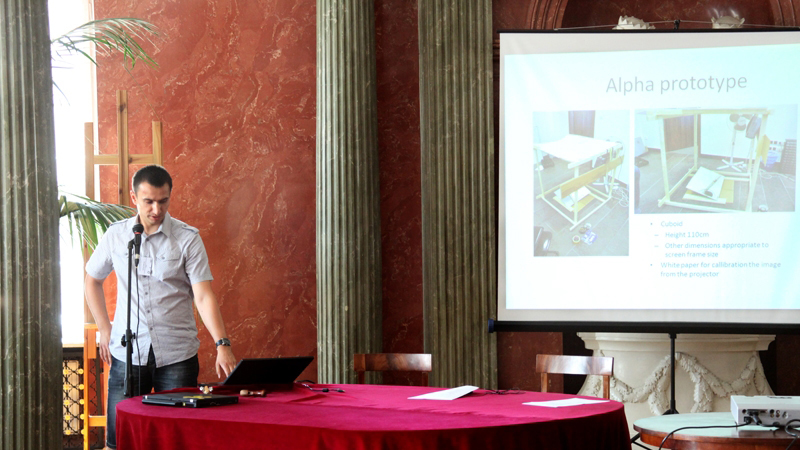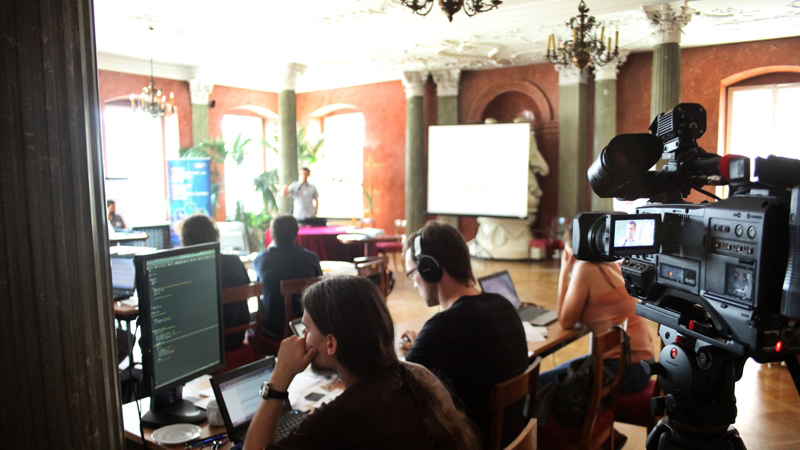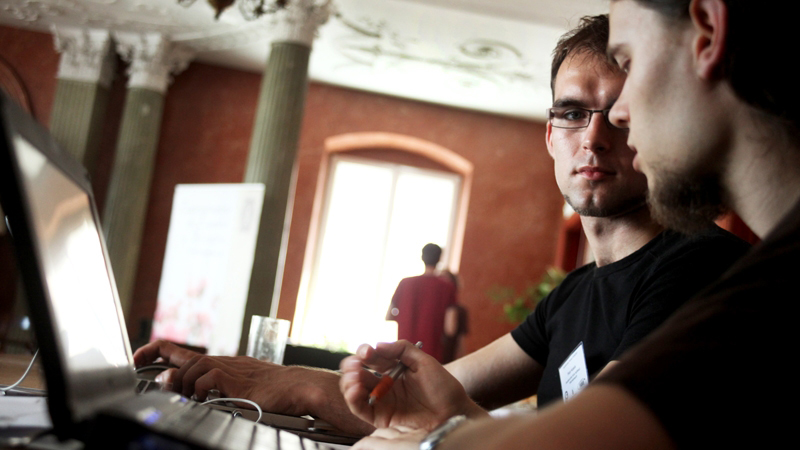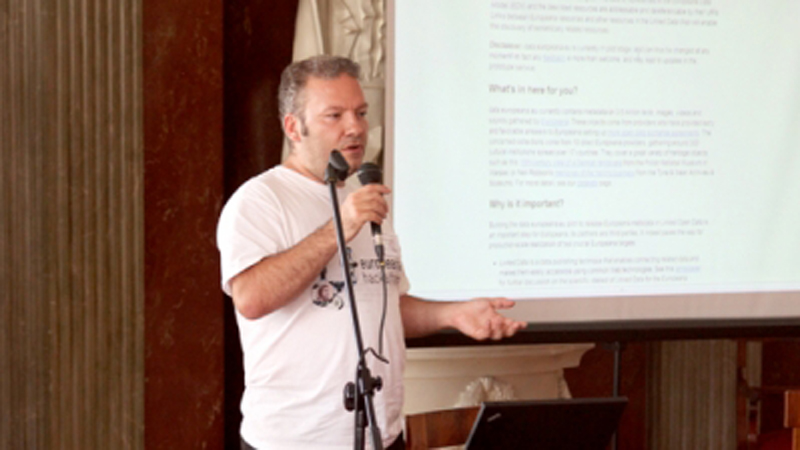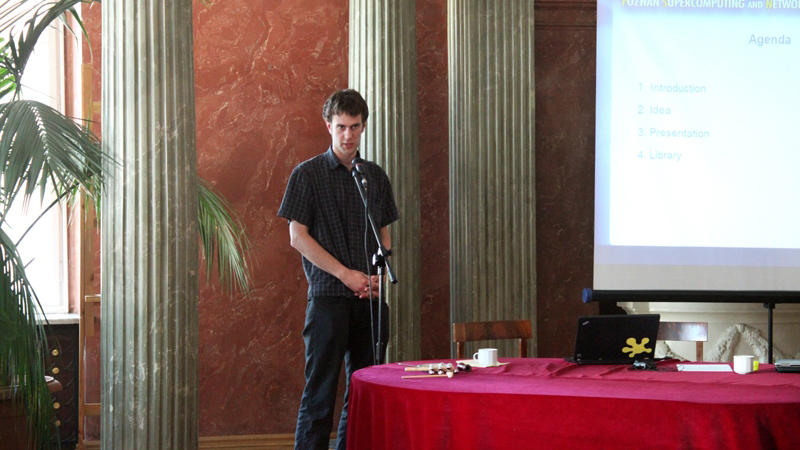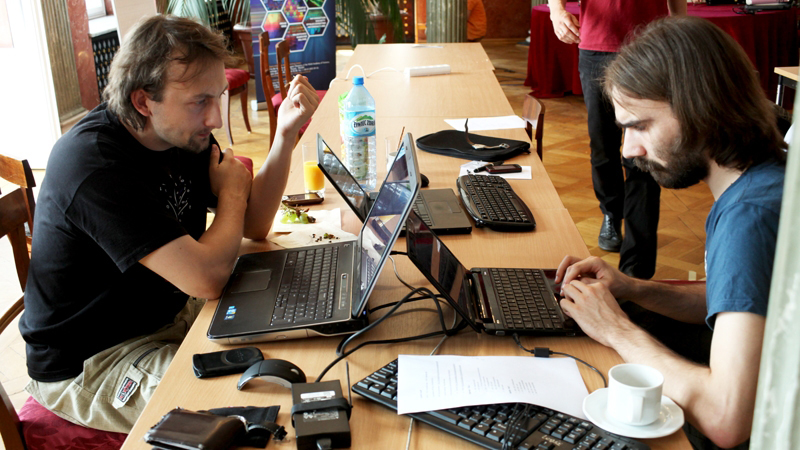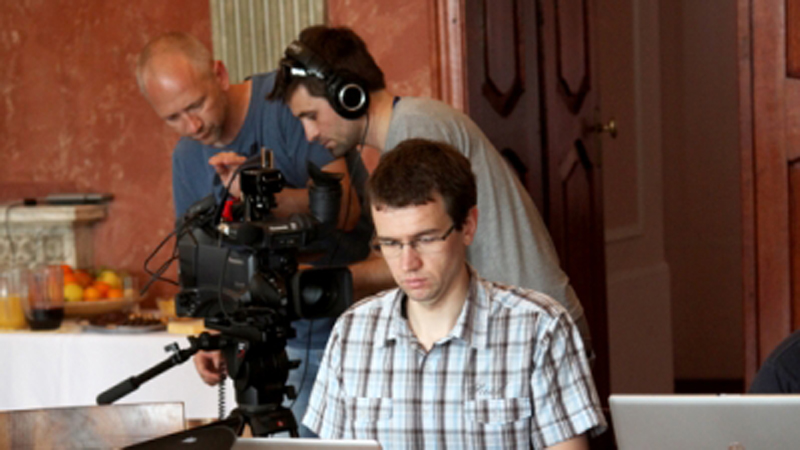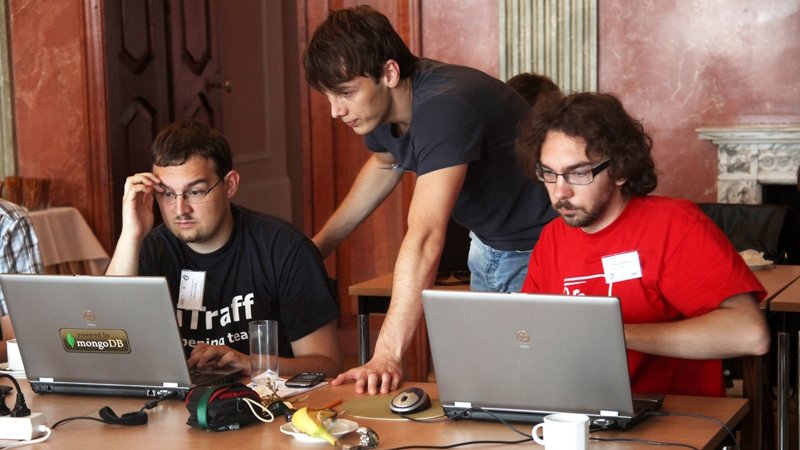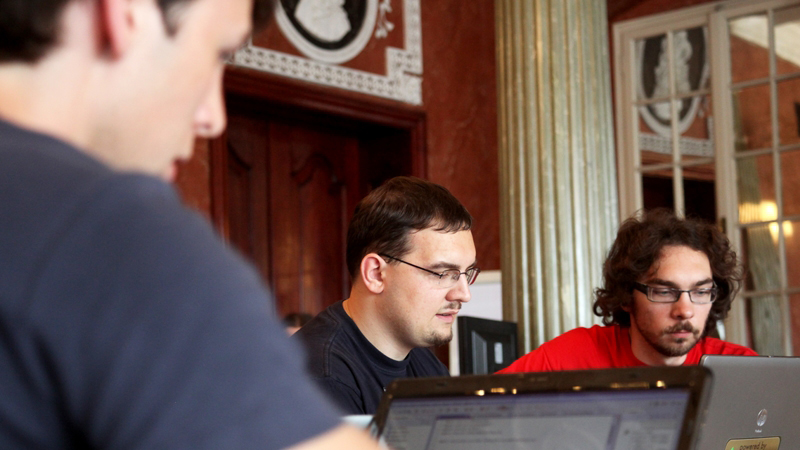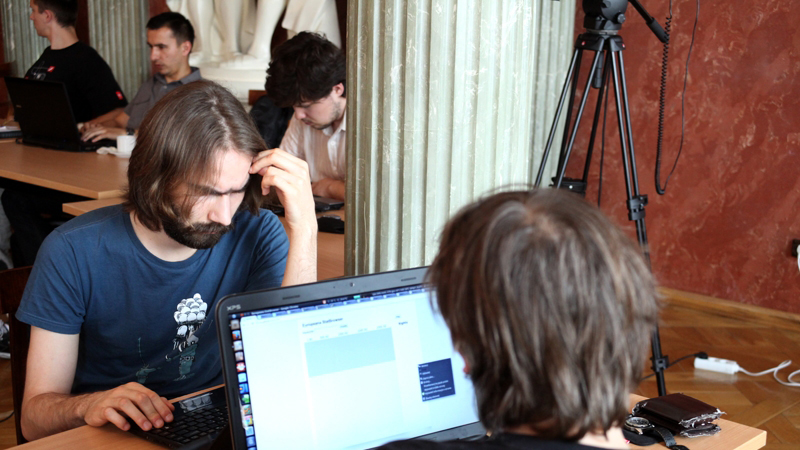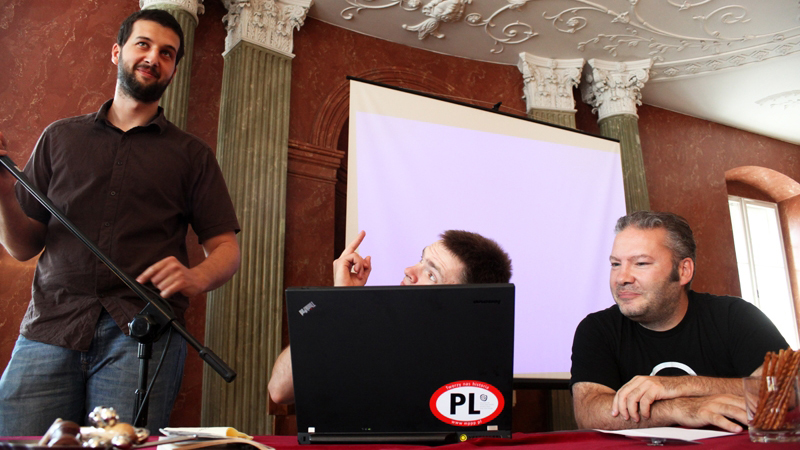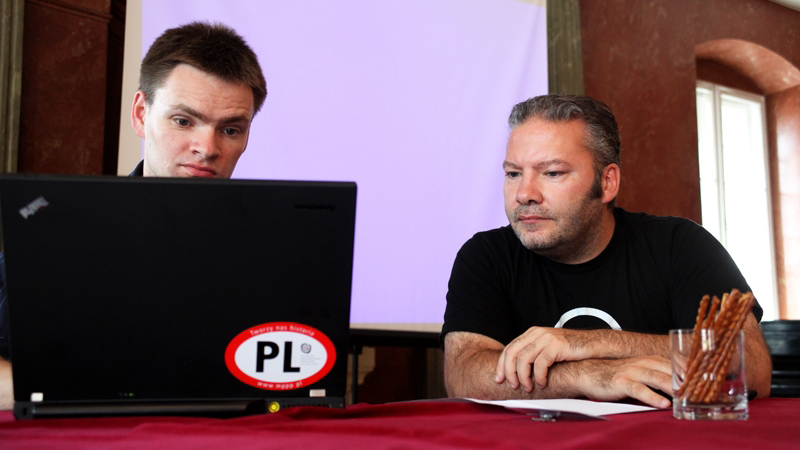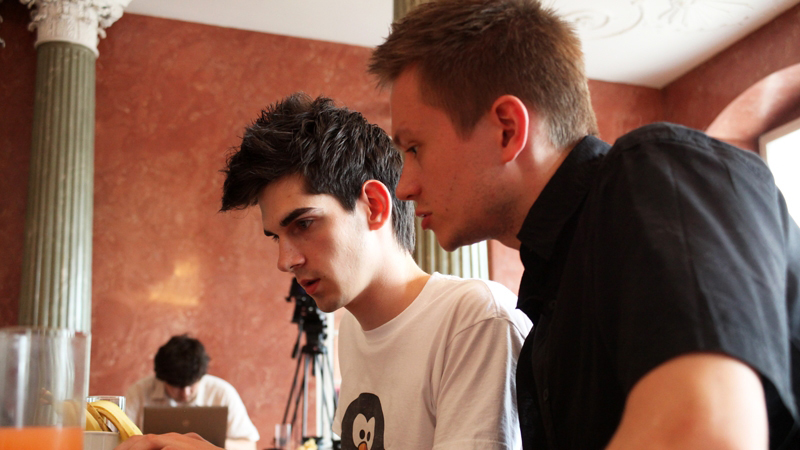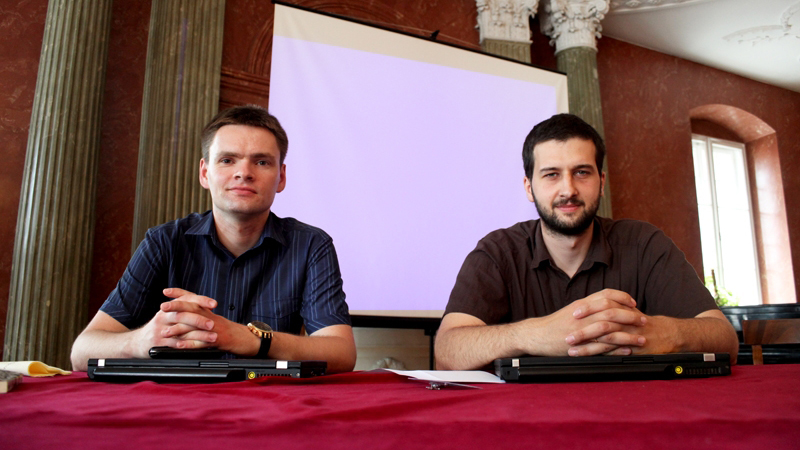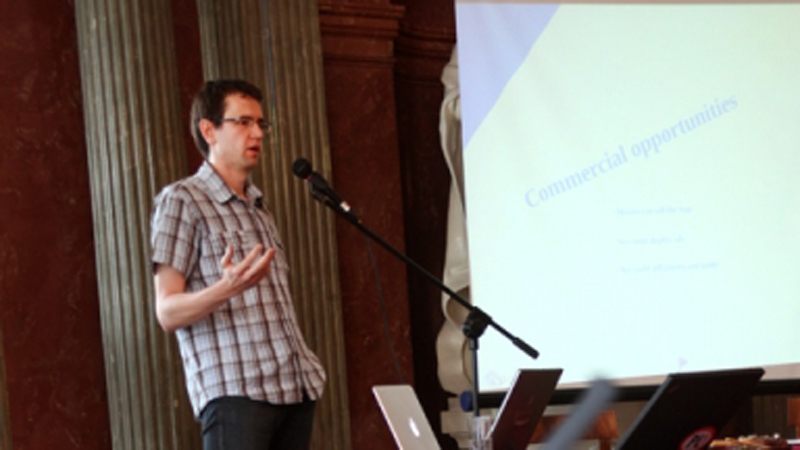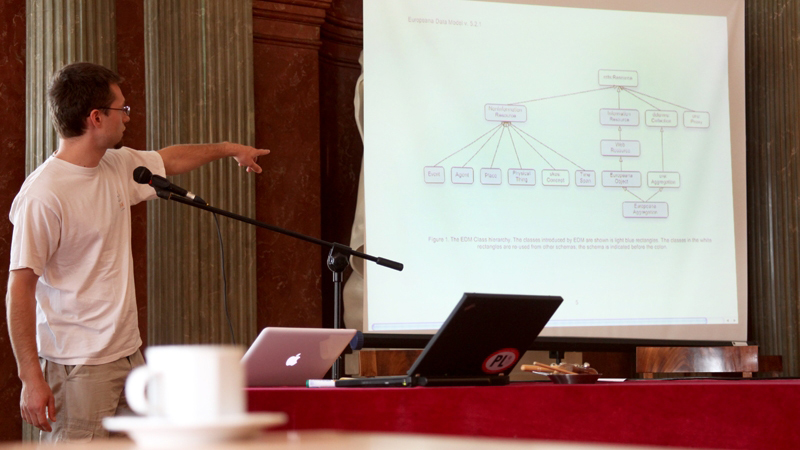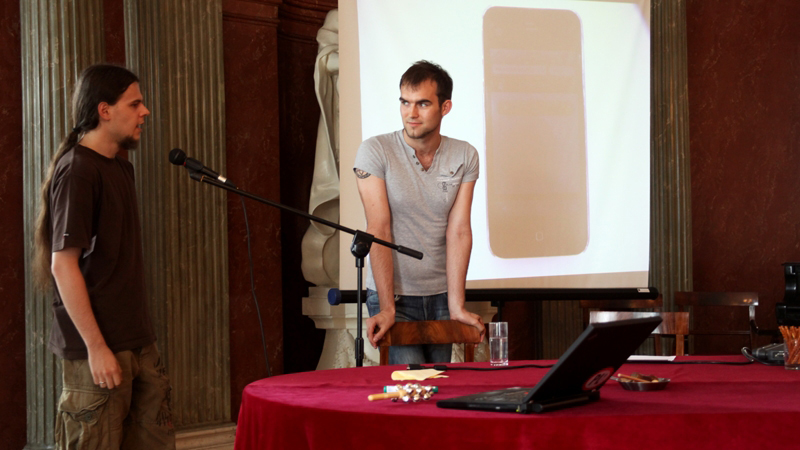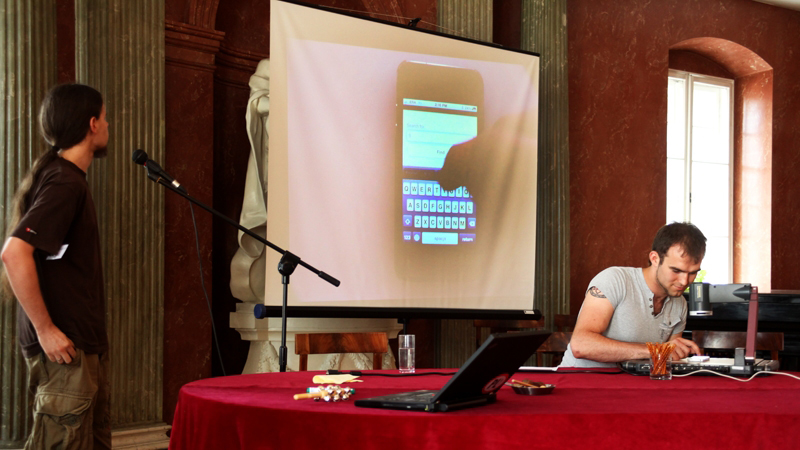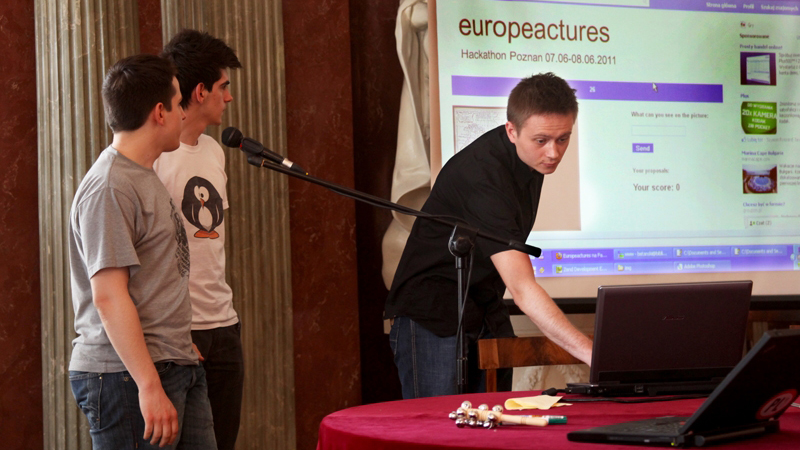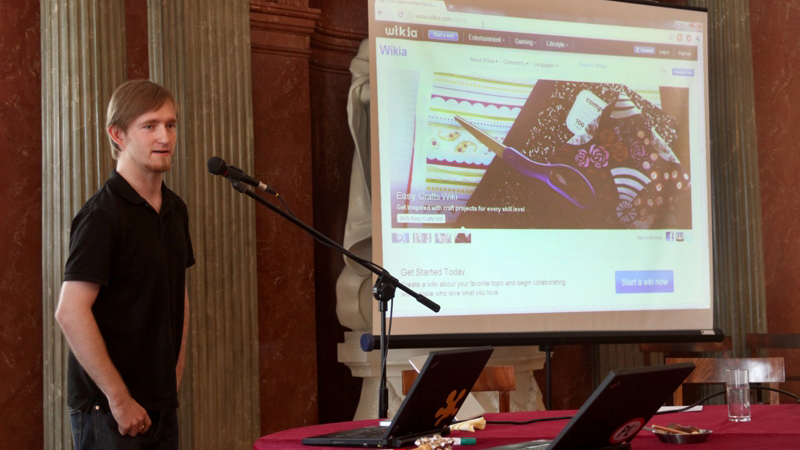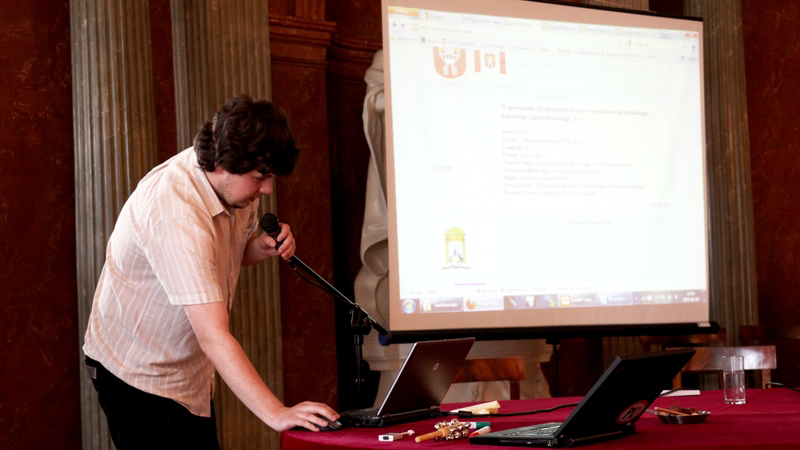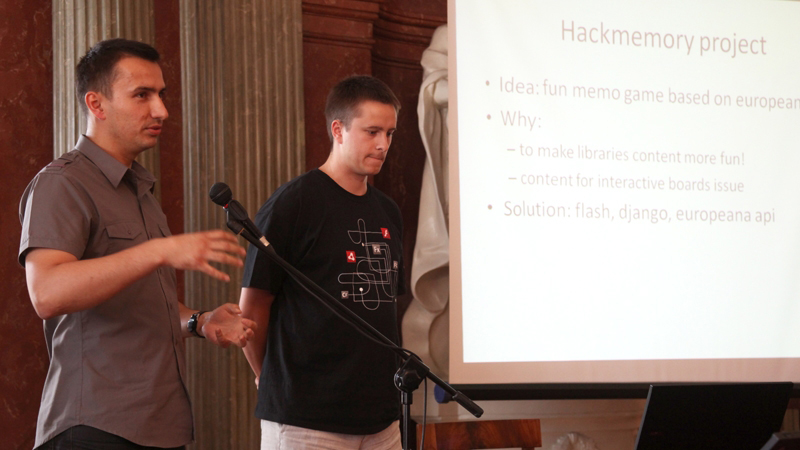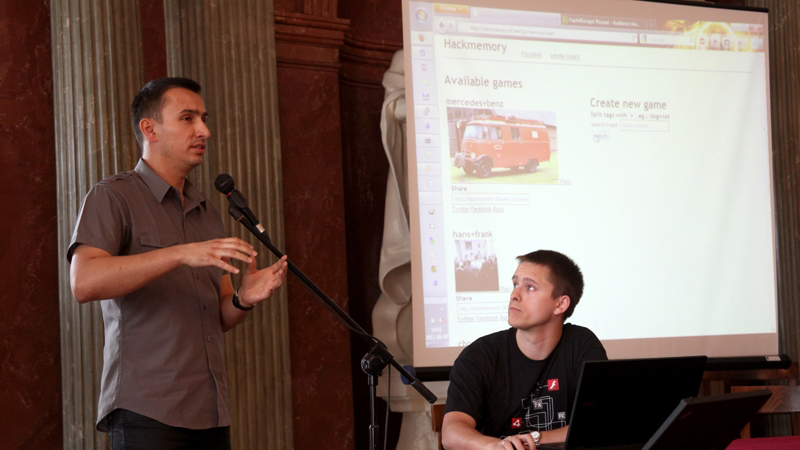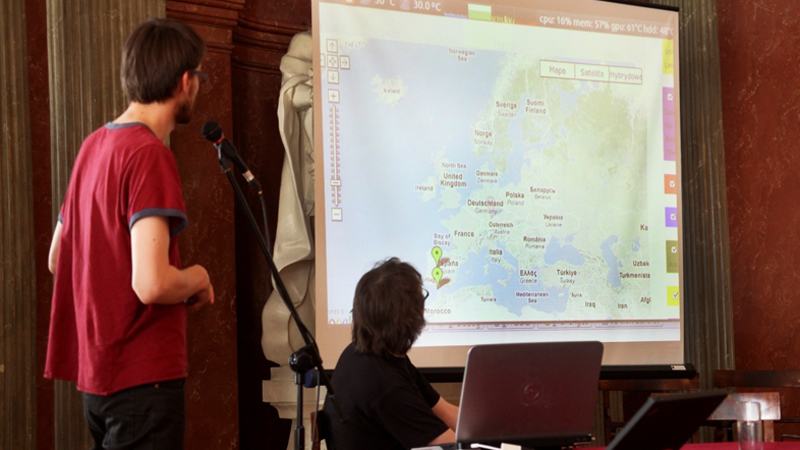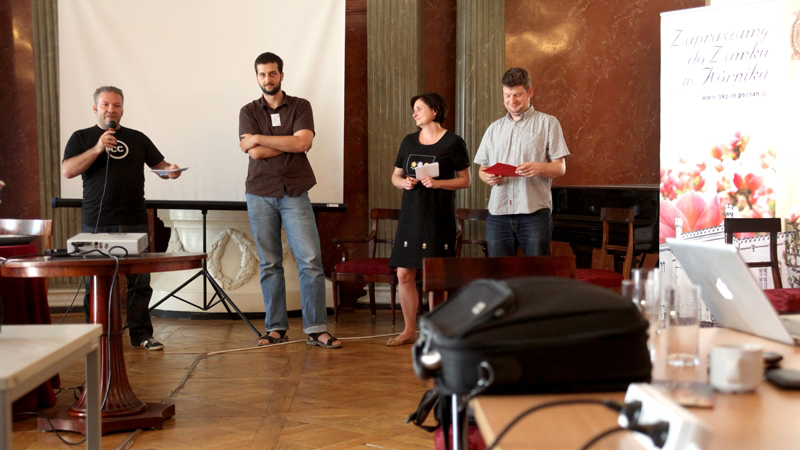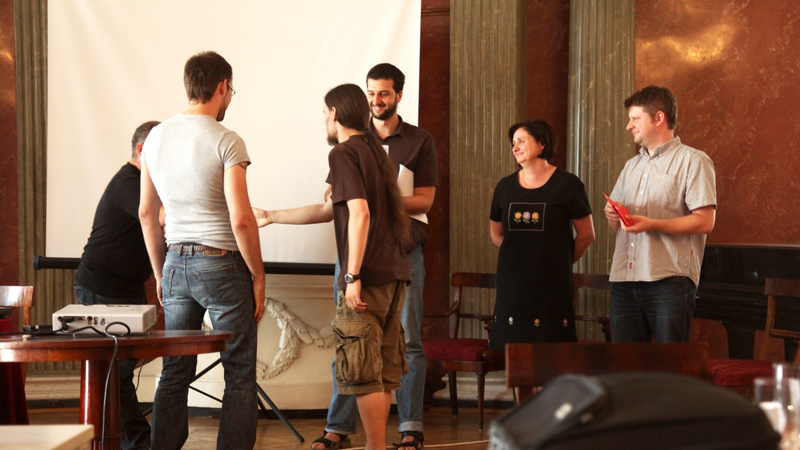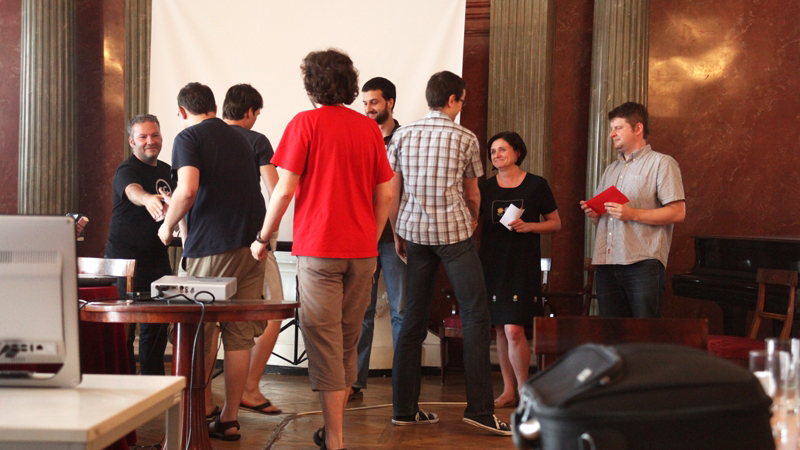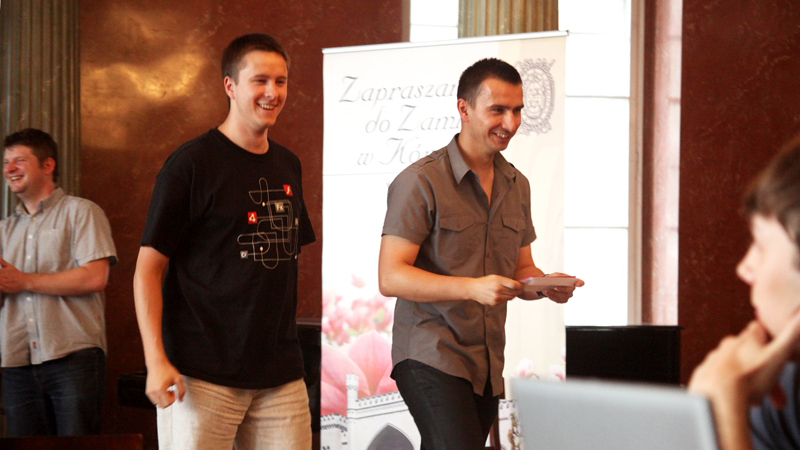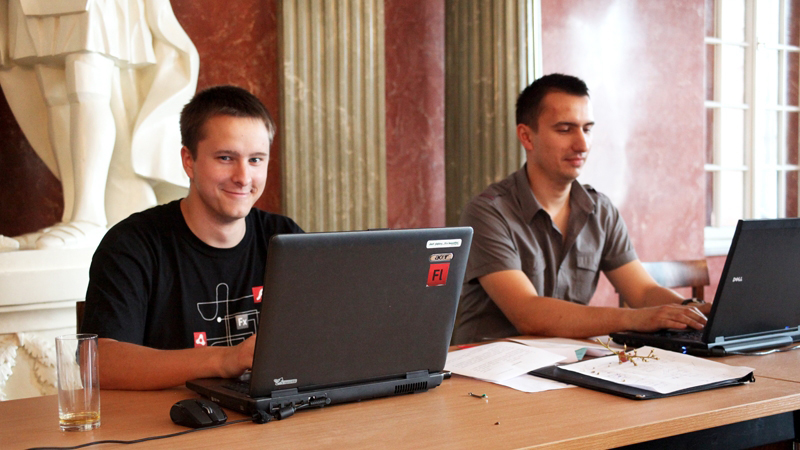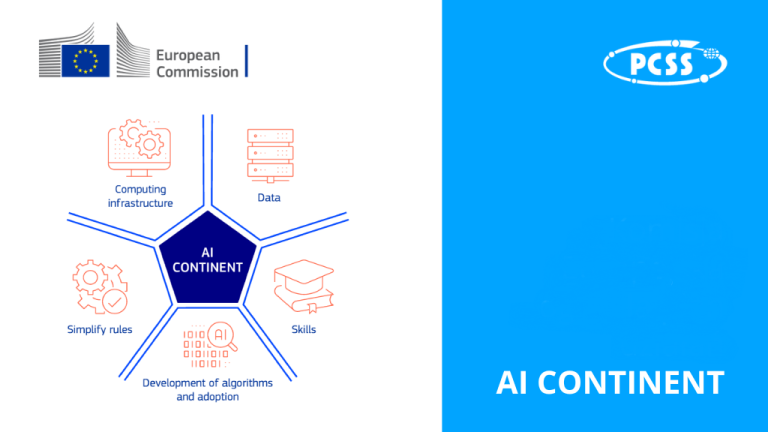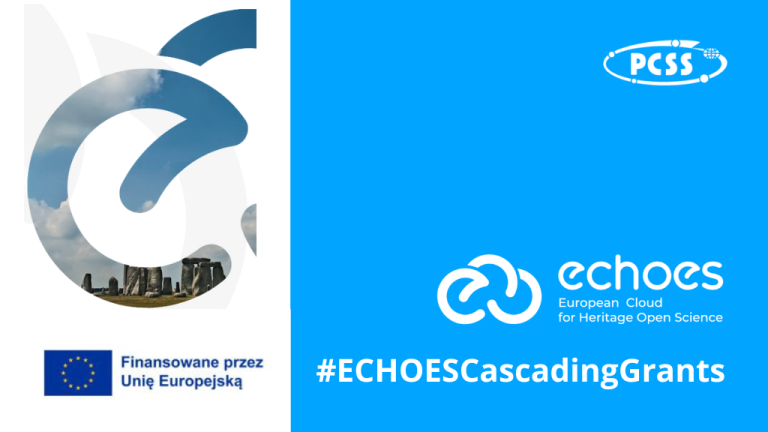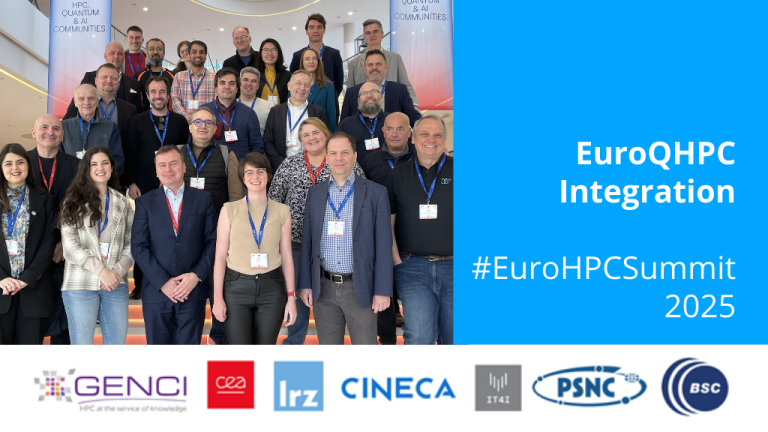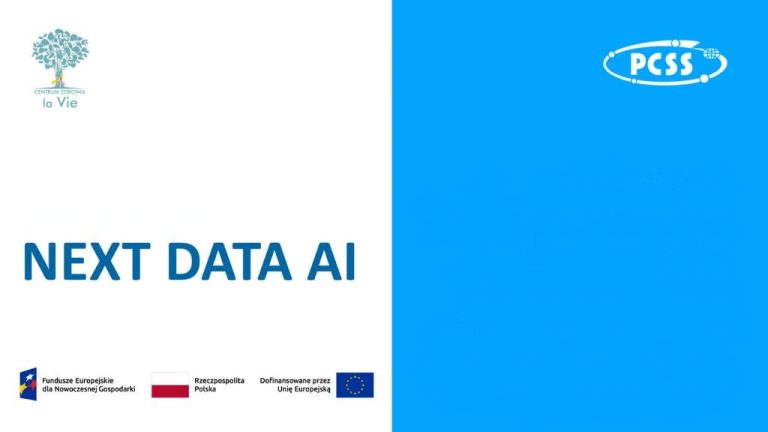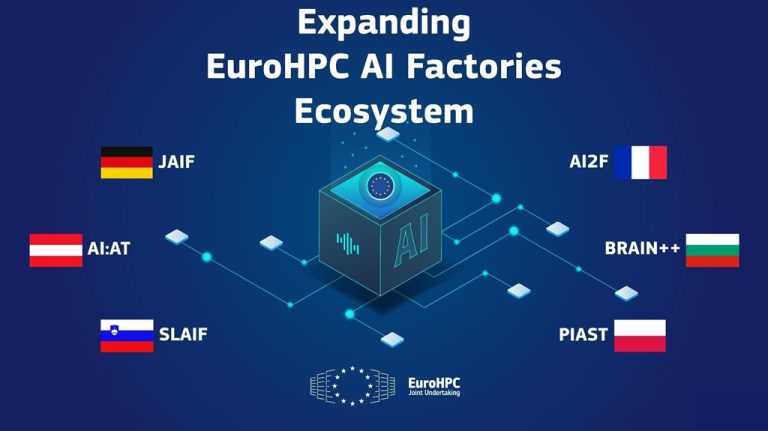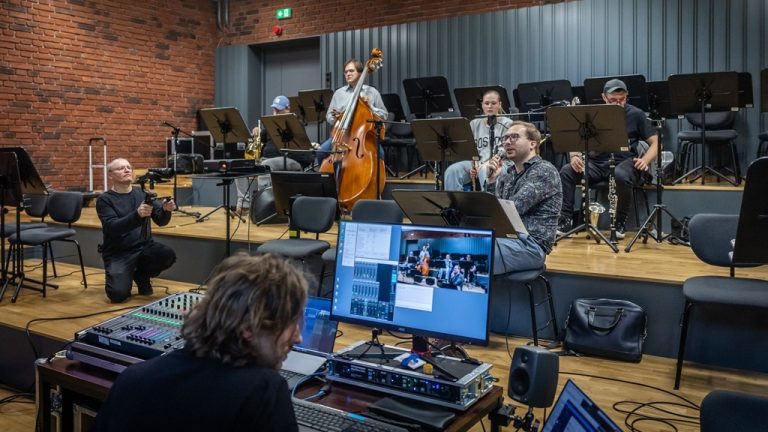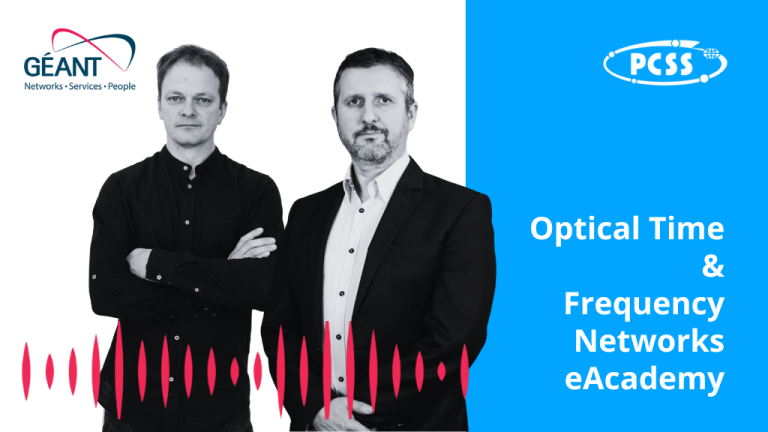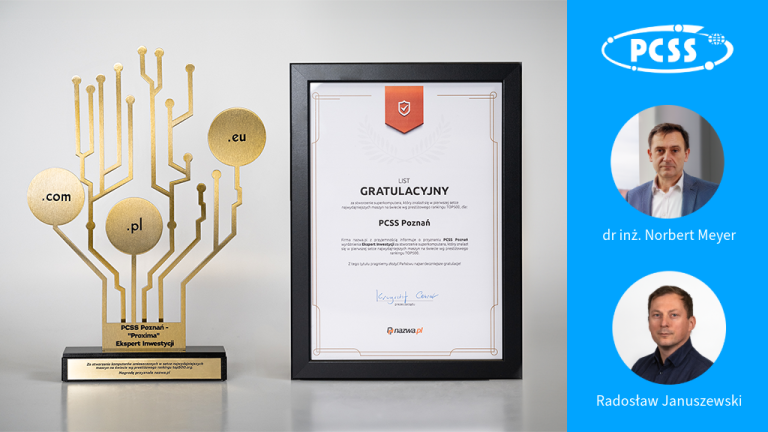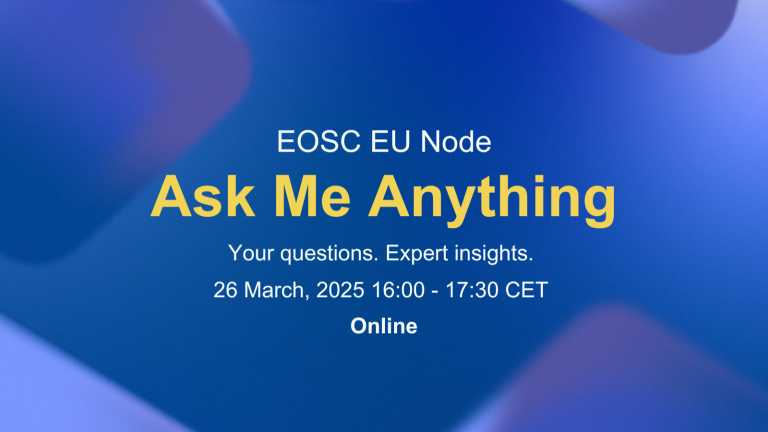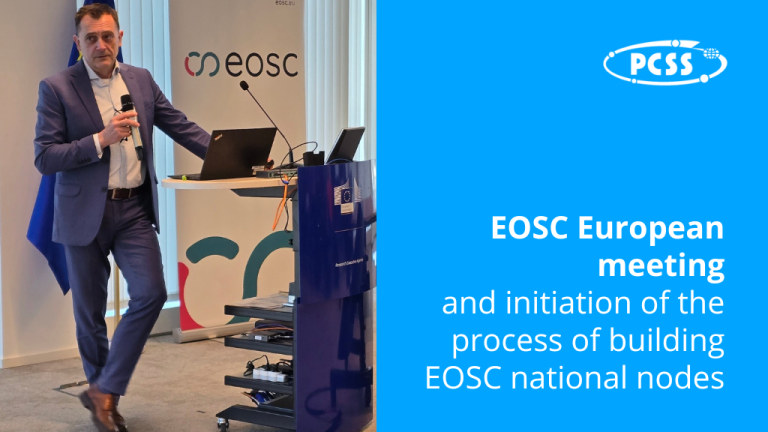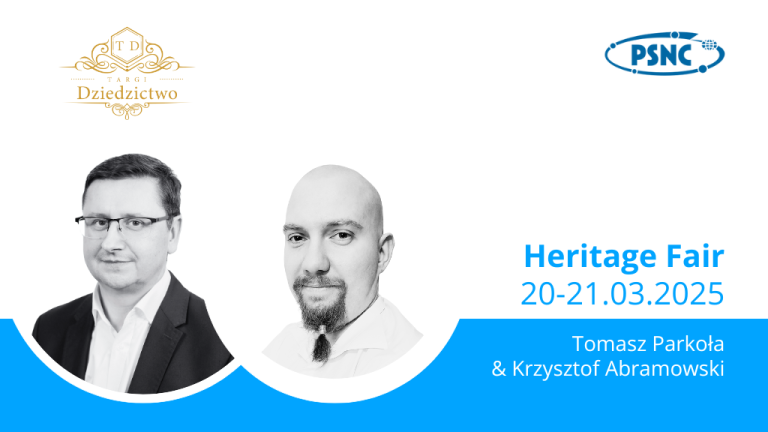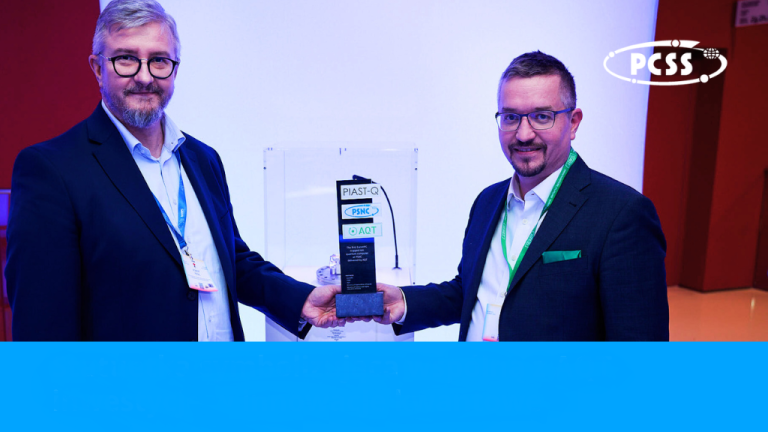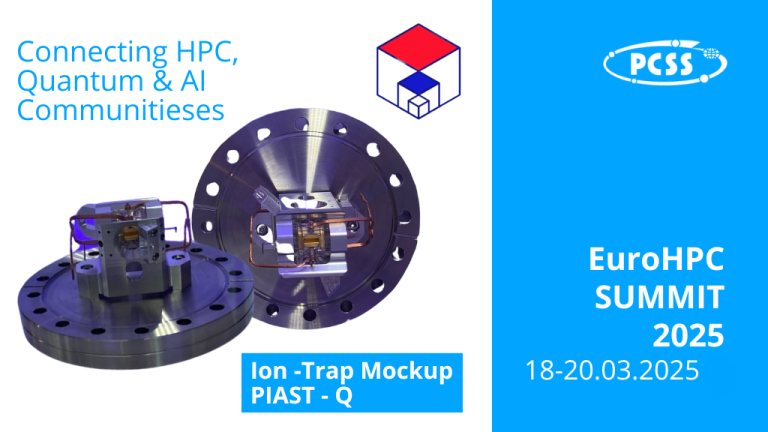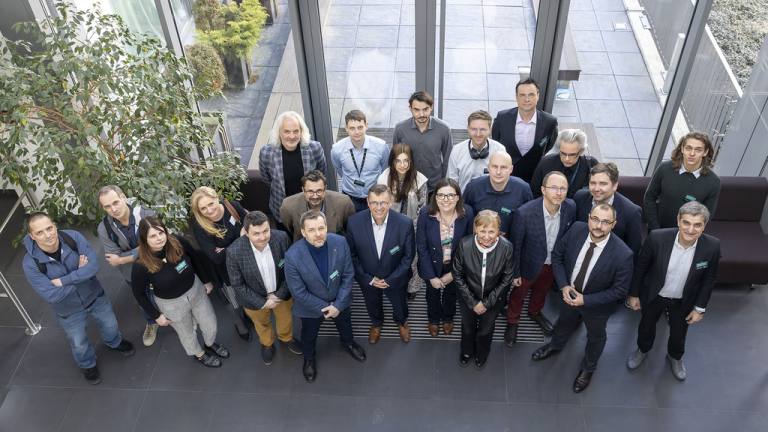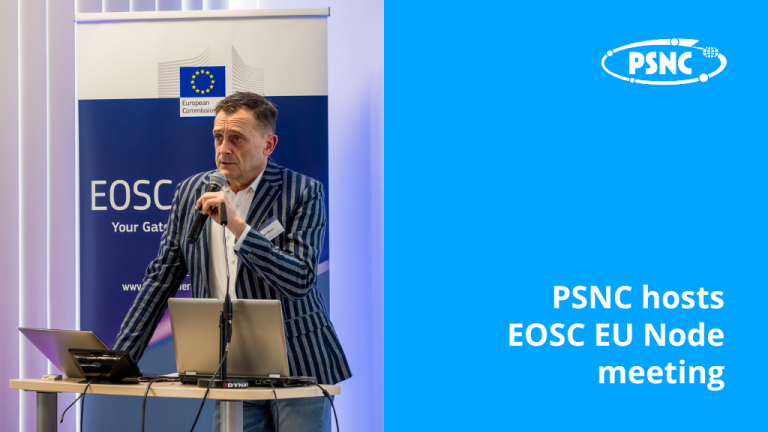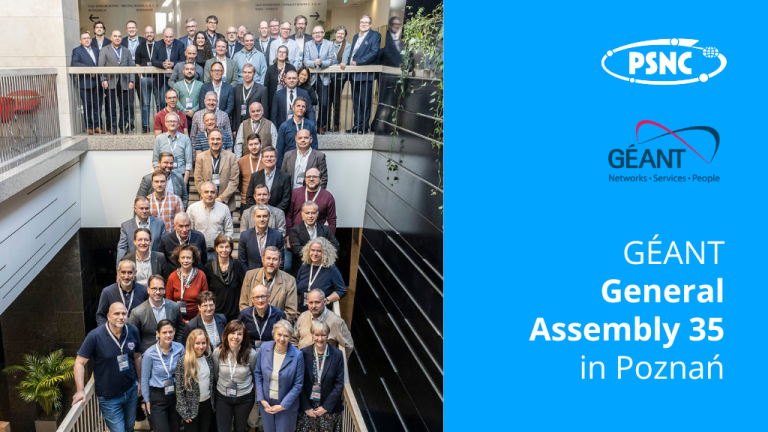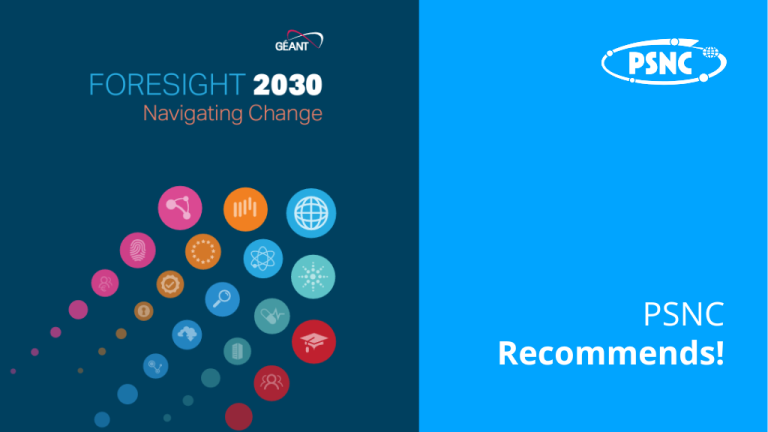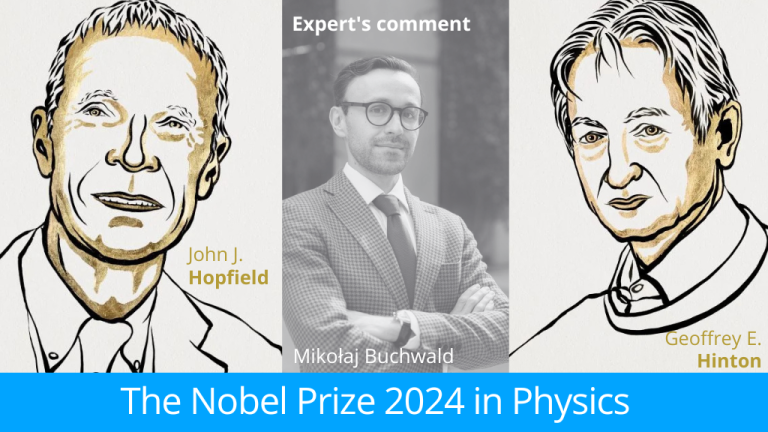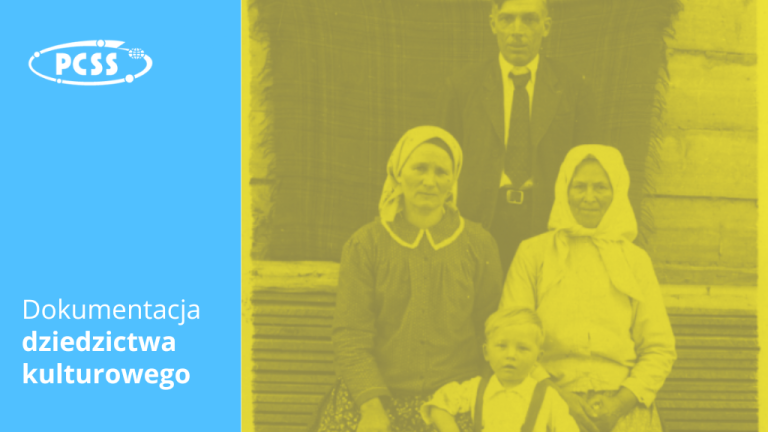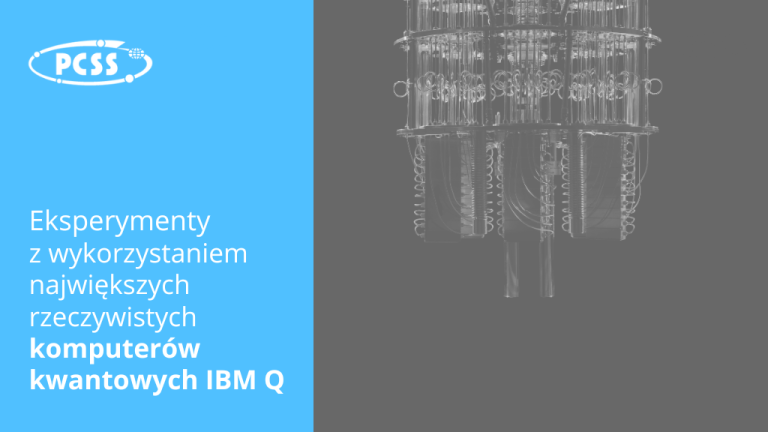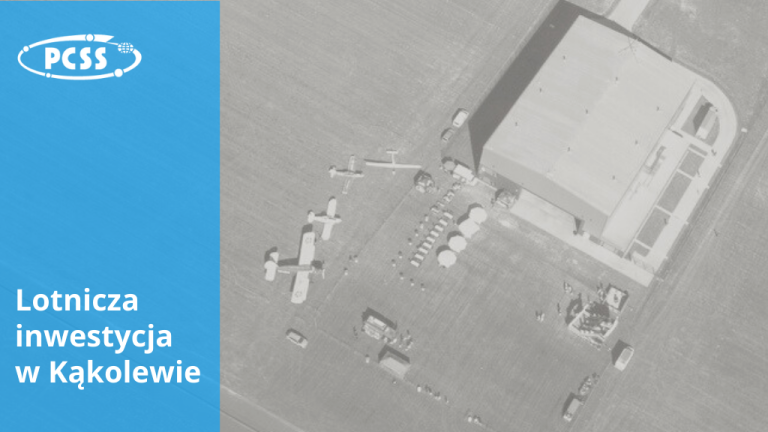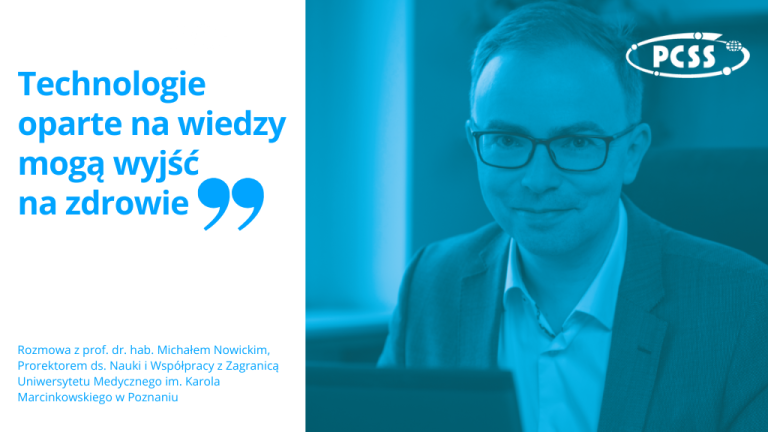On the second day of the Hack4Europe! workshop in Poznań 8 teams of developers from across Poland presented the results of their two-day work. Prizes for the best prototypes of applications were granted in four categories.
Darius Walczak from the Poznań Supercomputing and Networking Center and Bartosz Indycki from Poznań University of Technology formed a team spontaneously during the first day of the workshop. The two created a project called Hackmemory, based on the Internet logical game. It is a simple educational application for kids and adults based on well know memo games. Your task is to find two exactly matching pictures. After finding each pair you can read about the content of the picture. User can create his/her own quiz and simply share it with friends on twitter, facebook or buzz. The content of the puzzle comes from Europeana and it is filtered by the creator of the quiz. Pupils and friends can compete and fight for the best place on a leader board, the fastest friend wins. The application won in the categories: “the greatest social impact” and “audience award”. The latter was granted by all of the Poznań hackathon participants.
In the category of “the greatest potential for business” a project called Art4Europe won. This mobile application allows the user (while appearing in the museum) capturing artworks the phone, then on that basis, the extraction of Europeana additional information about it. If the description of the painting or sculpture is in a language not spoken by a user, the application can translate the description, or even turn it into the form of audio (read). Additionally, the user can be for example directed to an online store with reproductions or publications concerning this work. The prototype was developed by a team from the iTraff Technology Sp. z o. o. composed of: Jakub Jurkiewicz, Marcin Szajek, Jakub Porzuczek i Tomasz Grzywalski.
The most innovative idea was a project called Europeana Field Game. In this case also a mobile application was created, which would allow the use of cultural heritage objects to so-called “urban games”. Users of this application may be using their mobiles to search for interesting objects of cultural heritage, and then place them in a virtual space of the city. Other users, according to the tasks set out in the game, can collect virtual items, thereby gaining more points. The prototype was developed by Zbigniew Tenerowicz i Piotr Kaleta from AKAI of Poznań University of Technology.
Poznań workshop did not end up competing in this year’s Hack4Europe! Once all this year’s hackathons are finished, it will be announced which of Poznań hackathon prototype application will be presented June 16 in Brussels at a meeting of the Digital Agenda Assembly.
Photo by Magdalena Madaj

